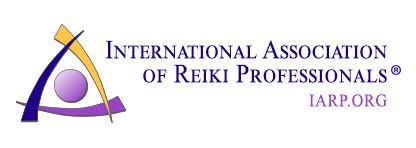-
-
-
-
-
-
-
-
-
-
-
Definition of Reiki
-
-
-
-
-
-
-
-
-
-
-


Definition of Reiki
Reiki is a spiritual healing art. It is not massage nor is it based on belief or suggestion. A Reiki session usually is between 60 and 90 minutes in length. The session is performed by a Reiki Practitioner (RP or RMT) using specific Reiki hand positions. During a Reiki session, the client is fully clothed while comfortably reclining on a massage table or seated in a chair. A Reiki session aids in stress reduction and it is almost always a very relaxing experience. Reiki sessions or classes are a great investment in yourself.
Reiki is:
- A subtle and effective form of energy healing using spiritually guided life force energy (Rei-ki)
- Practiced in every country of the world
- Being used in many setting including hospitals, hospice, as well as in private practice
and in self-care
- A wonderful complementary modality in a personal wellness or healing program
Reiki is not:
- Affiliated with any particular religion or religious practice
- New. Reiki energy itself is thousands of years old
Defining qualities of Reiki:
- A practice of transmitting healing energy through the hands
- Passed on through the attunement process
- The energy is not guided by the practitioner, but the energy has it's own innate wisdom
to guide itself.
- Reiki energy is not based on belief, faith or suggestion.
A Reiki session may help ease tension and stress and may help support the body to facilitate an environment for healing on all levels- physical, emotional and spiritual. A session is pleasant and relaxing and is most often utilized for one's own personal wellness. A Reiki I class is a great gift to give to yourself. To find a Reiki Practitioner or Reiki Master Teacher in your area of the world please see Find a Reiki Practitioner or Teacher.
Please Note: Reiki is meant to be used as a complement to traditional care or as a personal relaxation or stress reducing tool. It is not a substitute for qualified medical or traditional care.
Reiki is a spiritual healing art. It is not massage nor is it based on belief or suggestion. A Reiki session usually is between 60 and 90 minutes in length. The session is performed by a Reiki Practitioner (RP or RMT) using specific Reiki hand positions. During a Reiki session, the client is fully clothed while comfortably reclining on a massage table or seated in a chair. A Reiki session aids in stress reduction and it is almost always a very relaxing experience. Reiki sessions or classes are a great investment in yourself.
Reiki is:
- A subtle and effective form of energy healing using spiritually guided life force energy (Rei-ki)
- Practiced in every country of the world
- Being used in many setting including hospitals, hospice, as well as in private practice
and in self-care
- A wonderful complementary modality in a personal wellness or healing program
Reiki is not:
- Affiliated with any particular religion or religious practice
- New. Reiki energy itself is thousands of years old
Defining qualities of Reiki:
- A practice of transmitting healing energy through the hands
- Passed on through the attunement process
- The energy is not guided by the practitioner, but the energy has it's own innate wisdom
to guide itself.
- Reiki energy is not based on belief, faith or suggestion.
A Reiki session may help ease tension and stress and may help support the body to facilitate an environment for healing on all levels- physical, emotional and spiritual. A session is pleasant and relaxing and is most often utilized for one's own personal wellness. A Reiki I class is a great gift to give to yourself. To find a Reiki Practitioner or Reiki Master Teacher in your area of the world please see Find a Reiki Practitioner or Teacher.
Please Note: Reiki is meant to be used as a complement to traditional care or as a personal relaxation or stress reducing tool. It is not a substitute for qualified medical or traditional care.